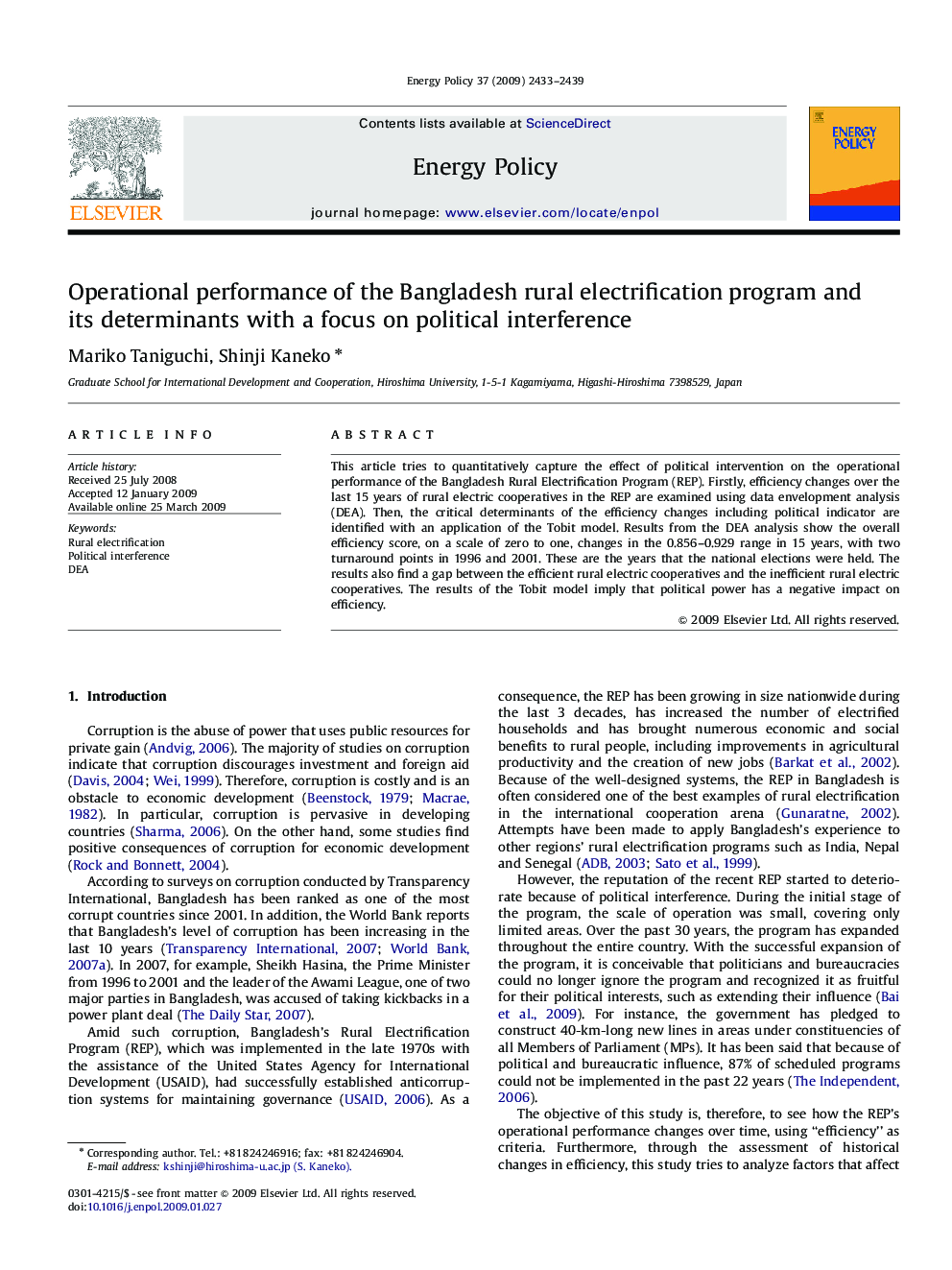| Article ID | Journal | Published Year | Pages | File Type |
|---|---|---|---|---|
| 993631 | Energy Policy | 2009 | 7 Pages |
This article tries to quantitatively capture the effect of political intervention on the operational performance of the Bangladesh Rural Electrification Program (REP). Firstly, efficiency changes over the last 15 years of rural electric cooperatives in the REP are examined using data envelopment analysis (DEA). Then, the critical determinants of the efficiency changes including political indicator are identified with an application of the Tobit model. Results from the DEA analysis show the overall efficiency score, on a scale of zero to one, changes in the 0.856–0.929 range in 15 years, with two turnaround points in 1996 and 2001. These are the years that the national elections were held. The results also find a gap between the efficient rural electric cooperatives and the inefficient rural electric cooperatives. The results of the Tobit model imply that political power has a negative impact on efficiency.
